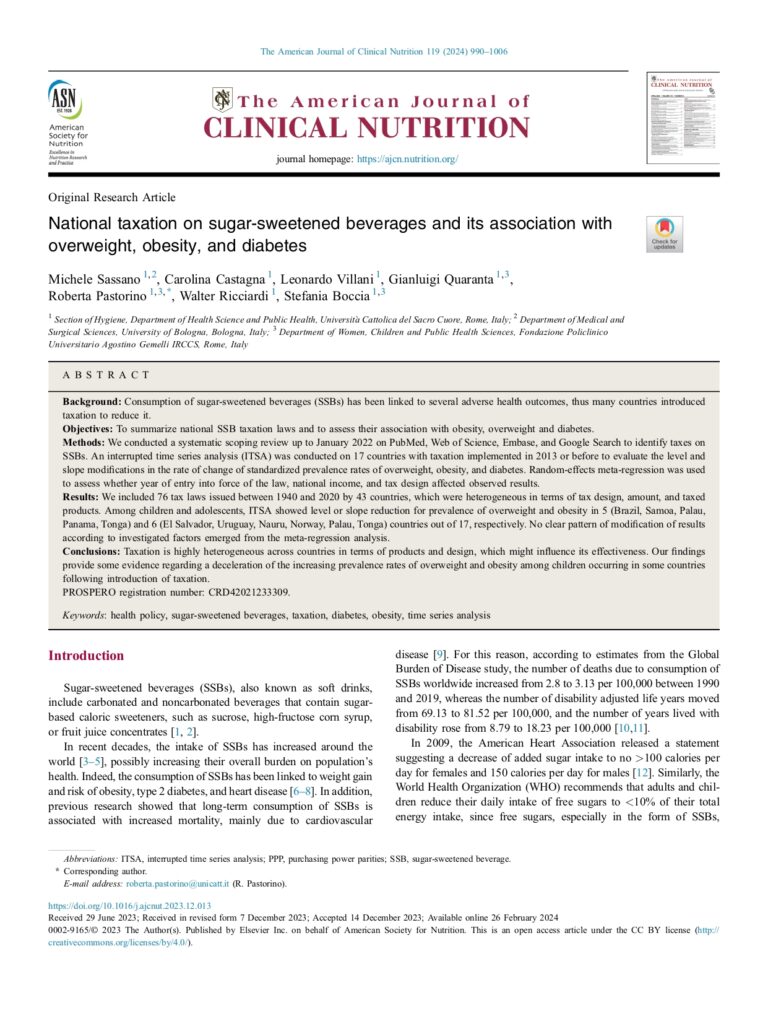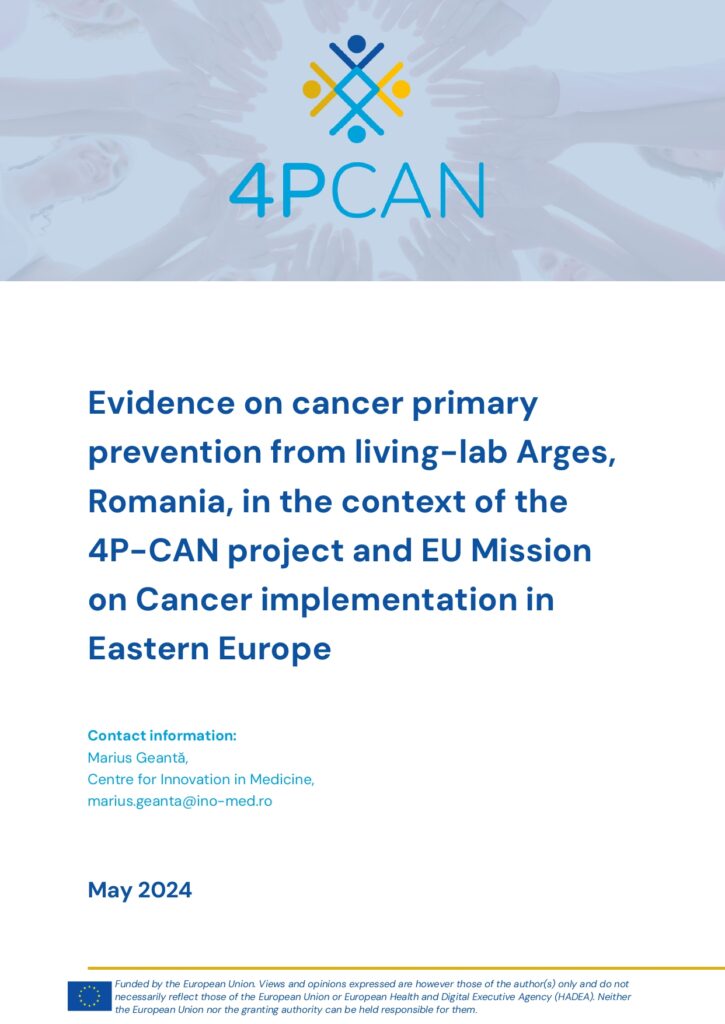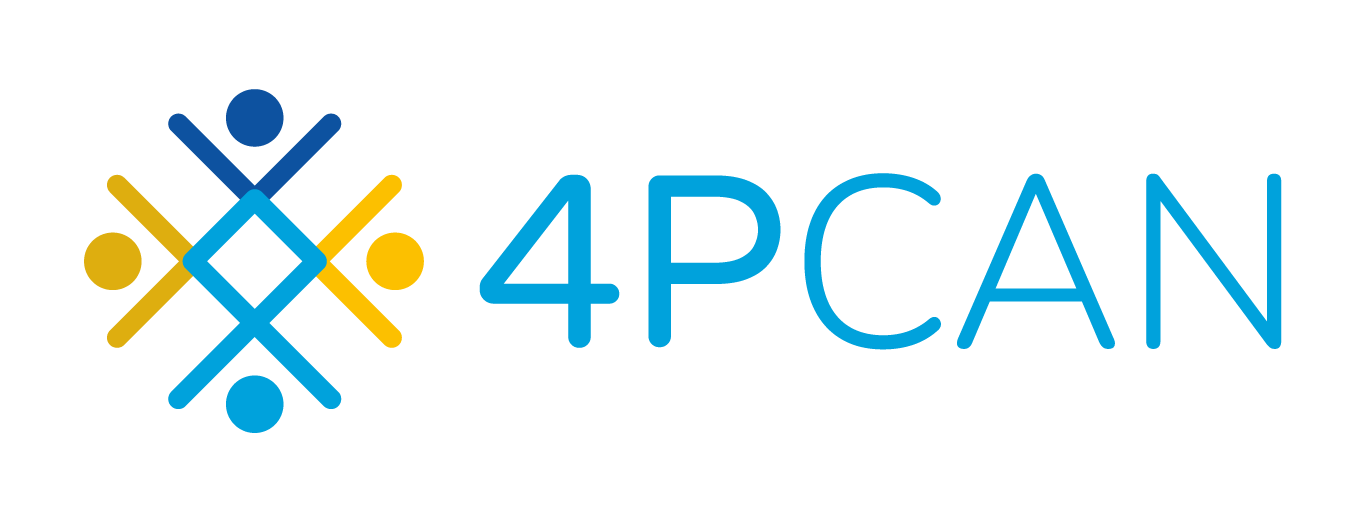Welcome to our resources section. Here you will be able to access 4P-CAN Deliverable documents, publications, and policy briefs as they become available. Please check back regularly as we continue to update this section with informative and relevant materials.
This comprehensive economic analysis quantifies the indirect costs of cancer-related premature mortality across eight European countries, examining both macroeconomic burden and behavioural intervention pathways for cancer risk reduction. The research employs quantitative methodologies to assess productivity losses, fiscal revenue impacts, and policy intervention effectiveness within the framework of the 4P-CAN Horizon Europe project on personalized […]
This report examines alcohol, food, and sugar regulations as part of the 4P-CAN project’s multi-level assessment of cancer risk factors. It evaluates national policies and regulatory frameworks across EU and non-EU countries, focusing on alcohol control, food regulations (including preservatives and artificial sweeteners), and sugar-sweetened beverage policies. Using literature reviews and supplementary research, the report […]
Cancer is a major health concern in Europe, especially in Romania. The 4P-CAN project uses Personal Network Analysis (PNA) to explore how social relationships influence health habits like smoking, diet, and exercise. In Lerești, Romania, researchers are studying over 80 participants to understand how social networks impact cancer risk. Findings show that people with similar […]
Cancer incidence has been rising in Europe, with notable disparities between Western and Eastern countries due to differences in risk factors like smoking. Cancer Primary Prevention seeks to address these modifiable factors, requiring collaboration across various societal sectors. This deliverable, using surveys and interviews with 110 CPP stakeholders across nine countries, found that while the […]
The deliverable emphasises the pivotal role of the External Advisory Board in contributing to the project’s success, underscoring the importance of their diverse expertise, experience, and valuable insights.
This deliverable extends the International Agency for Research on Cancer (IARC) qualitative study on the European Code Against Cancer (ECAC) to Romania and Bulgaria within the 4P-CAN Project. It evaluates the implementation of ECAC recommendations in these countries, identifying barriers and facilitators to cancer prevention through the COM-B behavior model and Behaviour Change Wheel. Aimed […]
Military actions have significant short- and long-term environmental impacts, particularly on air pollution and cancer epidemiology. This report reviews scientific and grey literature, focusing on the Yugoslavian and Russian-Ukrainian wars. Findings show war-related air pollution may contribute to negative health outcomes, including reduced cancer survival rates, as seen during the Russian invasion of Ukraine. Although […]
Cancer remains a major public health issue in Europe, with Eastern countries facing lower HPV and HBV vaccination rates compared to the West. The 4P-CAN project seeks to map vaccination policies, identify best practices, and address regional disparities. Despite effective vaccines, uptake in Eastern Europe remains low due to misinformation, limited healthcare access, and low […]
Effective project management is key to the success of the 4P-CAN Project, led by INOMED’s Coordination team. Acting as a bridge between Project Partners and the European Commission, INOMED ensures strong governance, coordination, and support—especially for four non-EU countries new to EU funding. Success depends on timely milestones, efficient resource use, and the ability to […]
This report evaluates the implementation of EU tobacco control directives across EU and non-EU countries within the 4P-CAN Consortium, assessing policies, regulations, and enforcement levels. While all participating countries are parties to the WHO Framework Convention on Tobacco Control (FCTC), significant disparities exist, particularly between EU and non-EU nations, in taxation, smoke-free policies, health warnings, […]
The goal of this deliverable is to present a set of initial policy recommendations under the collaborative efforts from the 6 projects within the “Prevention and early detection” cluster of the Mission Cancer initiative, based on the Research and Innovation strand. This policy brief is intended to amplify the overall impact on the Mission Cancer’s […]
This report presents the conclusions from the first annual meeting of the “Prevention and Early Detection Cluster” that took place on September 23rd, 2024, in Vienna jointly worked and agreed upon the common annual meeting. This report provides an overview of the Cluster and its projects, summarizing the key presentations from its first annual meeting.
The purpose of the Data Management Plan (DMP) is to outline data management strategies within the 4P-CAN project, ensuring compliance with GDPR guidelines. It encompasses data collection, processing, resource allocation, security, ethics, and updates throughout the project’s lifecycle. This living document adapts to changing data needs, consortium policies, and external factors.
This report examines the risks associated with radon exposure as addressed in the European Code Against Cancer. The task involves a scoping review of radon levels in Central and Eastern Europe (CEE), including existing limits and mitigation measures, and builds on a project from Plovdiv University, Bulgaria. The study aims to implement continuous radon monitoring […]
The adoption and implementation of physical activity (PA) recommendations vary across countries, largely influenced by their institutional structures. In non-EU, former socialist countries, PA guidelines are often integrated into national health strategies, particularly within Non-Communicable Disease prevention programs. However, these adoptions tend to remain formal, lacking effective implementation due to gaps in knowledge, capacity, and […]
Cancer is a leading global cause of death, and primary prevention policies targeting modifiable risk factors are crucial for reducing its impact. This deliverable presents a scoping review of performance indicators used to monitor, propose, or evaluate cancer prevention policies at international and national levels across consortium partner countries. Indicators were categorized into six risk […]
This report provides an in-depth analysis of the direct costs of cancer, focusing on national government expenditures on cancer-related programs and patient care. It examines healthcare spending on interventions, including personnel, facilities, and medications, using a systematic literature review and a data dictionary to compile relevant datasets. The report introduces the Cancer Risk Factors Index […]

4P-CAN partners have united in a new publication titled ‘Characterizing stakeholders in cancer primary prevention in European countries: an exploration of challenges and opportunities using a penta-helix framework’, published in the journal Frontiers in Public Health. Cancer primary prevention has been widely recognised as a way to tackle preventable factors (e.g., smoking habits) associated with many cancer […]

We are proud to be featured in a new publication by the Liveration Project , addressing critical challenges in cancer prevention & care, while showcasing the power of collaboration within cancer-related European projects. The publication presents creative approaches to involve stakeholders in EU-funded cancer-related projects, by exploring innovative practices to engage individuals, organizations, and communities […]



© 2023 All rights reserved.
Funded by the European Union. Views and opinions expressed are however those of the author(s) only and do not necessarily reflect those of the European Union or European Health and Digital Executive Agency (HADEA). Neither the European Union nor the granting authority can be held responsible for them.
We use cookies or similar technologies for technical purposes and, with your consent, for other purposes as specified in the cookie policy. Denying consent may make related features unavailable.
Use the “Accept & Close” button to consent. Use the “Decline” button or close this notice to continue without accepting.
To find out more, read our cookies and privacy policy.